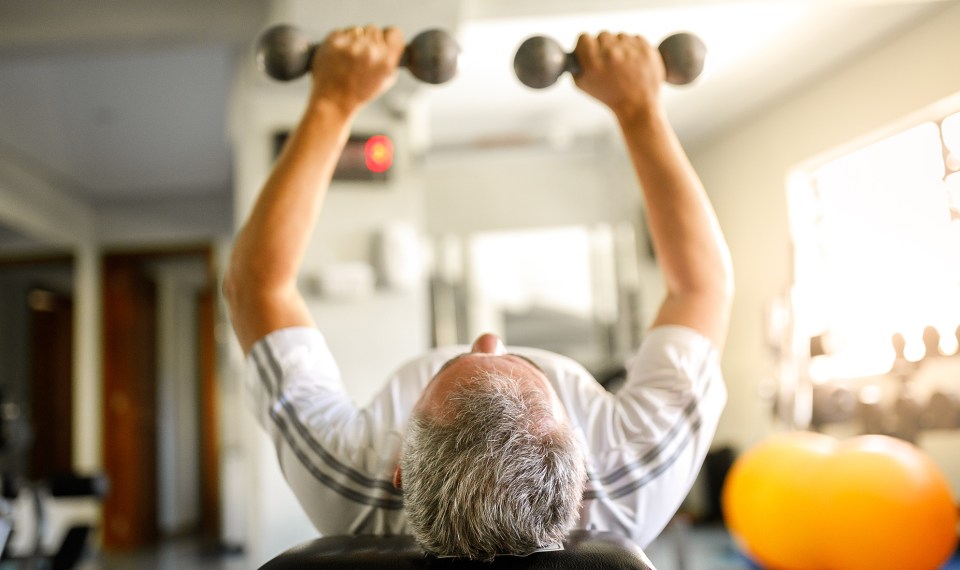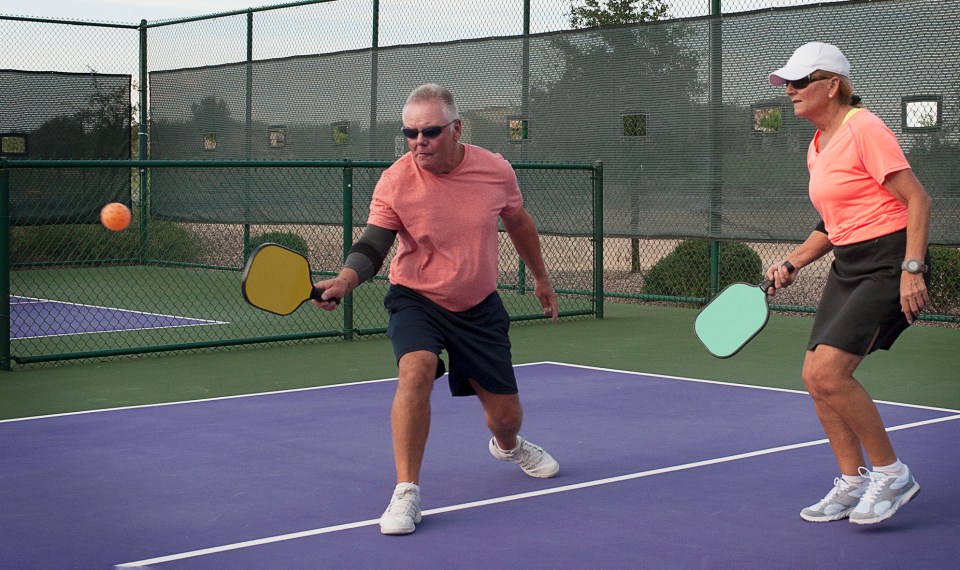As you get older, you may think strength training isn’t for you, but Jason Jackson, a physical therapist specializing in exercise and senior care, suggests you think again.
Strength training for seniors is an important part of an exercise regimen and can help improve overall physical and mental health as well as bone density and muscle mass.
“There’s a misconception that as you get older, you need to stop doing certain things, or you can’t do certain things that younger people can,” said Jackson, a physical therapist at Encompass Health Rehabilitation Hospital of Pearland in Texas. “Really, that’s the wrong direction. There’s no reason someone in their 50s, 60s or even 70s can’t start strength training, even if they’ve never lifted in their whole lives. You may have to be mindful of how fast or how much, but that doesn’t mean you can’t do it.”
The CDC recommends seniors get about 150 minutes of moderate exercise a week or 75 minutes or more intense exercise. At least two of those exercise sessions should include strength and endurance exercises.
Benefits of Strength Training for Older Adults
There are a variety of benefits of strength training for older adults.
You can lose anywhere from 3 to 8 percent of your muscle mass every decade after you turn 30. By the time you reach 60, muscle mass begins to decline at an even faster rate. This condition is known as sarcopenia and is a normal part of the aging process.
A decrease in bone density, especially in women, is also normal with age. Most women begin experiencing a decline in bone density around age 35, and that loss increases after menopause. This condition is known as osteopenia and could lead to osteoporosis.
Weight training can’t stop these natural processes of aging, but it can help slow the decline. Other benefits of strength training include:
- Improved balance. Building your muscles, especially your core muscles, can improve balance and reduce your risk of a fall.
- Improved mood. All types of exercise, including strength training, have been shown to improve your mood. When we exercise regularly, it releases endorphins in our brain that enhance our sense of wellbeing.
- Reduce health risks. Regular exercise can help lower your blood pressure naturally and reduce the risk of other chronic conditions such as diabetes and heart disease.
- Improved cognition. “In general, exercise is how to improve cognition as we get older,” Jackson said. “Just the fact that it increases blood flow to the body, which includes the brain, helps.”
What is Considered Strength Training
Strength training, also known as weight training or resistance training, is any exercise that you use either body weight or equipment to build muscle mass and strength.
Many consider strength training to be lifting weights, but Jackson said it can come in a variety of forms, including resistance bands or exercises such as push-ups and squats.
Getting Started
As with any exercise routine, always consult with your doctor first.
“There could be some medications you are on if you have high blood pressure, for instance, that could cause issues with doing strenuous exercises,” he said. “It’s always good to talk with your physician, who can help you make decisions based on your personal health history.”
Jackson offers the following tips and suggestions for seniors wanting to add strength training to their exercise regiment.
- Take it slow. If strength training is something new to you, be sure to start small and build up. If using weights, use lighter ones that allow you to perform multiple repetitions.
- Make it enjoyable for you. If you never liked the gym or class settings, see if you can find some classes on YouTube to perform at home. There are a variety that include household items, such as soup cans and water jugs, so you don’t have to purchase equipment, Jackson said. If you do prefer the group setting, but don’t want to be working out with a bunch of 20 year olds, find a group such as SilverSneakers (which also offers online classes), or contact your local senior center or YMCA to see what options they might offer for older adults.
- Know when you’ve reached your limit. Strength training for seniors is a necessary part of any well-rounded exercise plan, but don’t overdo it. This can put you at risk for an accident or injury. “Don’t try to lift too much,” Jackson said. “When you’re doing strength training, you need to be doing it in a controlled manner, maintaining good form and posture. As you get more fatigued, you may end up injuring yourself. Stop before you reach exhaustion or fatigue.”
The content of this site is for informational purposes only and should not be taken as professional medical advice. Always seek the advice of your physician or other qualified healthcare provider with any questions you may have regarding any medical conditions or treatments.



